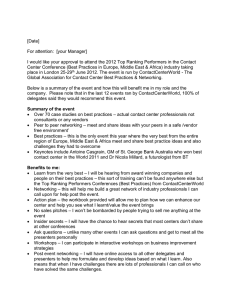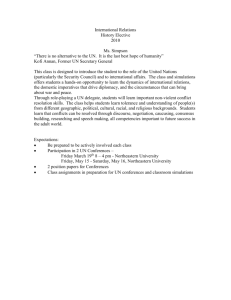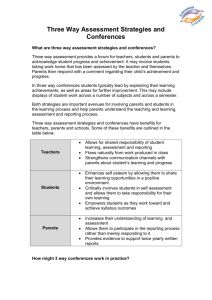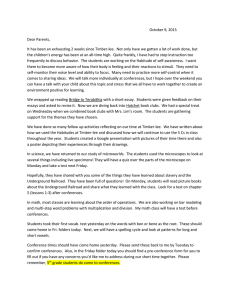NECE Focus Groups
advertisement
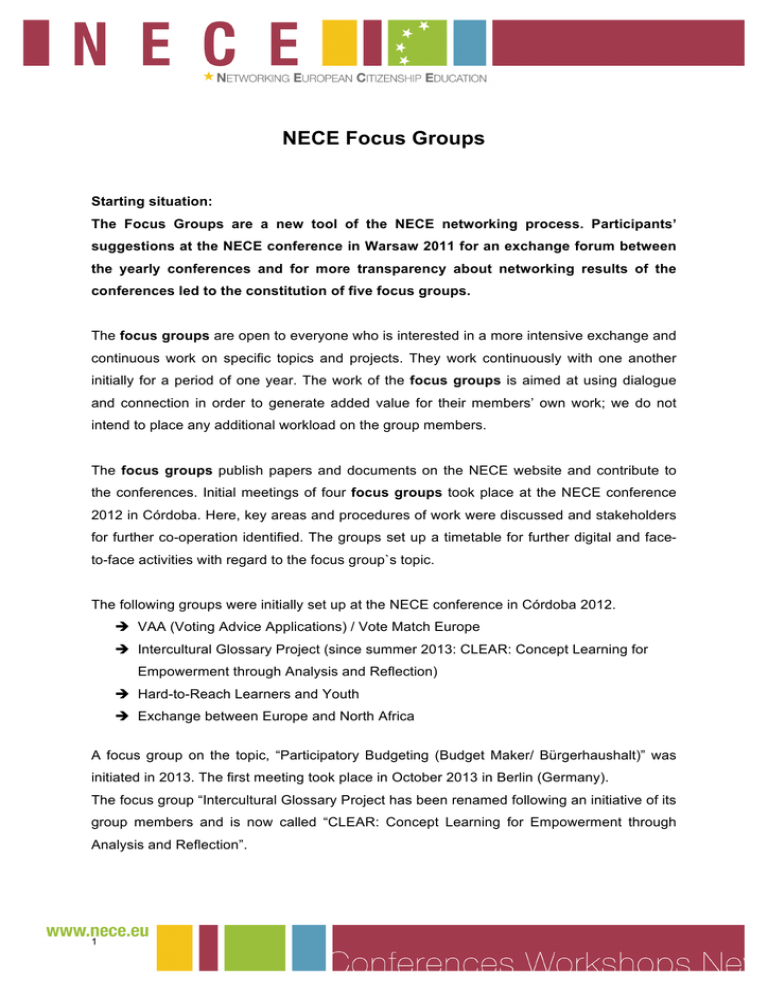
NECE Focus Groups Starting situation: The Focus Groups are a new tool of the NECE networking process. Participants’ suggestions at the NECE conference in Warsaw 2011 for an exchange forum between the yearly conferences and for more transparency about networking results of the conferences led to the constitution of five focus groups. The focus groups are open to everyone who is interested in a more intensive exchange and continuous work on specific topics and projects. They work continuously with one another initially for a period of one year. The work of the focus groups is aimed at using dialogue and connection in order to generate added value for their members’ own work; we do not intend to place any additional workload on the group members. The focus groups publish papers and documents on the NECE website and contribute to the conferences. Initial meetings of four focus groups took place at the NECE conference 2012 in Córdoba. Here, key areas and procedures of work were discussed and stakeholders for further co-operation identified. The groups set up a timetable for further digital and faceto-face activities with regard to the focus group`s topic. The following groups were initially set up at the NECE conference in Córdoba 2012. è VAA (Voting Advice Applications) / Vote Match Europe è Intercultural Glossary Project (since summer 2013: CLEAR: Concept Learning for Empowerment through Analysis and Reflection) è Hard-to-Reach Learners and Youth è Exchange between Europe and North Africa A focus group on the topic, “Participatory Budgeting (Budget Maker/ Bürgerhaushalt)” was initiated in 2013. The first meeting took place in October 2013 in Berlin (Germany). The focus group “Intercultural Glossary Project has been renamed following an initiative of its group members and is now called “CLEAR: Concept Learning for Empowerment through Analysis and Reflection”. 1 Strategic goals: Overall, with the focus groups the following goals will be pursued: è Elaborate contents, topics and measures on the continued strategic development of NECE è and make visible concrete outcomes of the contacts/ projects prompted through NECE activities è Reinforce and spread the networking mindset in Europe è Secure the long-term effectiveness of NECE activities è Increase transparency about existing formats, approaches, stakeholders, research findings and projects è Give lobbying activities a sound topical basis è Enable co-funding The operative goals, on which the focus groups need to reach a concrete agreement during their constituent session, include: è Bring together formats, approaches, stakeholders concerning the topics of the focus group è Discuss the transferability of approaches and formats within the focus group’s topic etc. è Bring together and discuss research findings or research projects, respectively è Publish articles on the topics of the focus group è Formulate joint criteria/quality standards/conditions for success etc. è Formulate recommendations/highlight desiderata for civic education è Develop or further develop new approaches, models; initiate and implement cooperation projects è Initiate and implement research projects The findings will be entered in: NECE newsletter NECE website NECE conferences other focus groups if applicable 2 Working method: The focus groups will convene at NECE conferences as well as, generally, at one joint workshop per year. Communication will be made possible in between times via an online tool. Texts can also be published on the official NECE website on and from this partially closed platform. Work programme: Goals and work programme will be established as far as practicable at the constituent session in Cordoba Participants: A focus group will consist of a core group (at least one member will come from the group of NECE core funding partners) of at least three persons/institutions. These will form the heart of the group and should be willing to undertake the following activities: è Compile time and work schedules è Enter written articles (into digital media) è Organise the annual workshops (with the support of the bpb, respectively of the NECE supervision agency) è Continuous collaboration for a period of one year Each focus group will be open to further individuals or institution representatives, who should declare themselves willing, should also collaborate (voluntary) if possible for a period of one year. They will collaborate (as equals) on all projects of the focus groups and will be invited to the focus groups’ annual European workshops. (Further persons/institutions that are not collaborating in the focus group can be invited to these workshops). Duration: The focus groups will work initially for a period of one year. After one year it will be decided whether the group is disbanded, modified, continued, or whether several focus groups will be merged. 3 Funding: Funding for a workshop in 2013 plus the online tool has been partially secured. For Vote Match Europe, European funding to implement a learning partnership has already been made available for 7 partner organisations (countries). For the remaining focus groups, the bpb will acquire European funding together with partners. 4
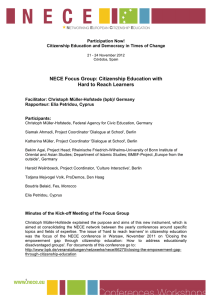
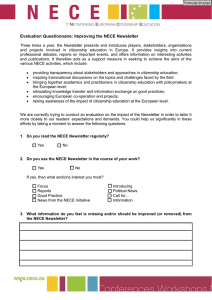
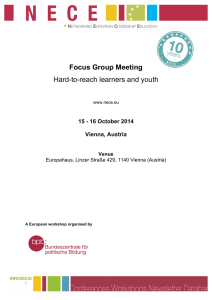
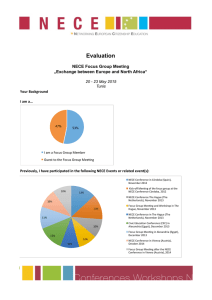
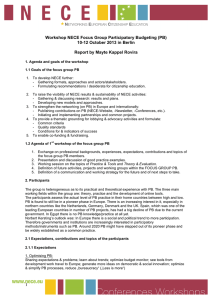
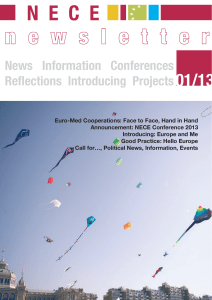
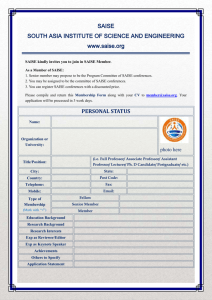
![[Today’s Date] [Your Supervisor’s First Name] [Your School or District’s Name]](http://s2.studylib.net/store/data/010451343_1-ed5410b4013e6d3fbc1a9bbd91a926a9-300x300.png)
